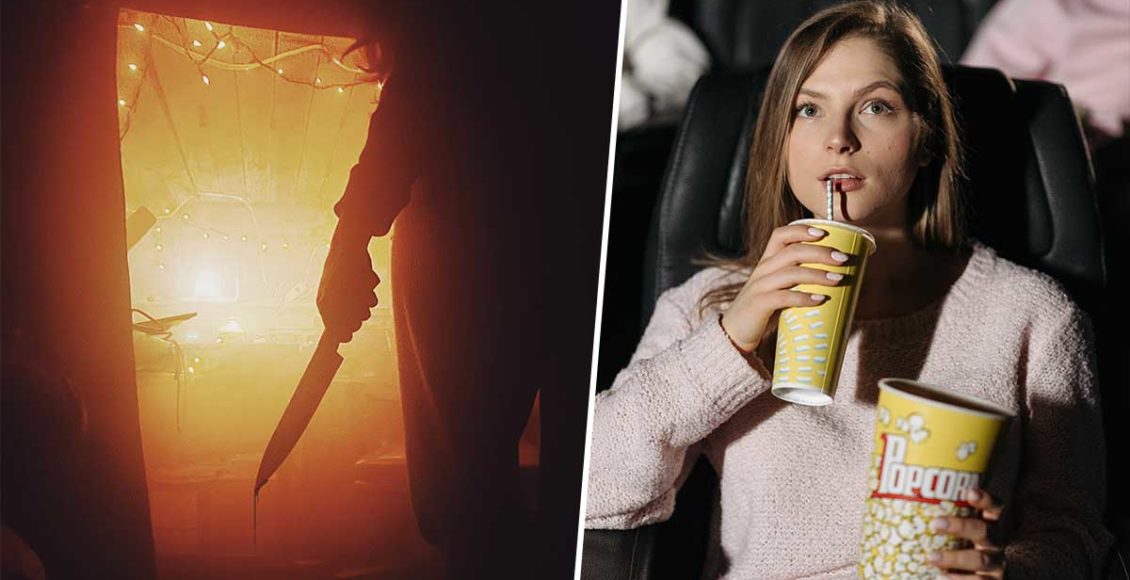Why do we love watching horror movies?
We have just witnessed how the South Korean horror drama has become Netflix’s most-watched series. Less than a month after the show’s premiere, it amassed over 111 million fans.
Squid Game has officially reached 111 million fans — making it our biggest series launch ever! pic.twitter.com/SW3FJ42Qsn
— Netflix (@netflix) October 12, 2021
Meanwhile, amid the spooky season, many of us gather in front of the big TV screens to rewatch some of the most iconic horror movies. Titles like A Nightmare on Elm Street, Scream, Saw, It, and, of course, Halloween, are usually amongst our top choices for an eerie movie marathon.
But why do we keep coming back to those terrifying classics, and why do we keep wanting more?
Psychology Today writer Frederick L. Coolidge Ph.D. presents the thought-provoking idea that horror films may draw upon what Carl Jung called an archetype.
For the famous Swiss psychiatrist, the Shadow archetype, which can be found in a number of horror films, represents the unknown and ignites chaos. According to Jung, this particular paradigm consisted of unacceptable traits to society. Its cultural expression is often associated with dark forms such as demons or dragons.
In fact, as Coolidge points out, Jung’s classic book Man and His Symbols depicts the Shadow with a picture of Godzilla. But the petrifying monster also reminds us that Shadow in its destructive form can make way for a constructive future.
Carl Jung on the Shadow pic.twitter.com/3JHRo9Geew
— Spirited DreamWeaver (@SpiritdDrmWeavr) October 25, 2021
What does the concept of Catharsis have to do with our love for horror?
Sigmund Freud, who was once a friend of Carl Jung, may also have found an answer to our question. According to the founder of psychoanalysis, catharsis is the therapeutic effect of the release of powerful or repressed emotions.
While watching a horror movie, we typically experience strong feelings of shock, fear, horror, and disgust. The act itself could be considered a cathartic experience, as we voluntarily allow these emotions to flow through us. That’s because we realize the film is not real and the villain is fictional, regardless of how horrified they may make us feel.
Then again, being exposed to such content may lead to struggling with nightmares. However, as per Freud’s explanation for repeated nightmares, watching a horror movie gives you a sense of control. You can always switch the TV off when you don’t want to watch anymore. So, if you too have nightmares far too often, this activity may help you gain control over your subconscious as well.
Could the desire to watch scary movies be related to the sense of pleasure?
According to a 2019 study, increased pleasure and desire for watching horror movies is closely related to less fear and less empathy. What’s more, the research claims that the ardor for sensation is positively correlated with the joy of watching scary films.
It may be no surprise for you, but the experts found out that men enjoy horror more than women, who are, by nature, more empathetic and more prone to anxiety and disgust. Meanwhile, individuals with manipulative personalities showed significantly less sadness and revulsion when watching movies from the genre, regardless of their gender. Concurrently, emotionally stable people got scared less easily than others.
Scream (1996) pic.twitter.com/ogqcaOcxgC
— ꜱᴜᴘʀᴇᴍᴇ ʜᴏʀʀᴏʀ (@supremevhs) October 28, 2021
Why do we get scared in the first place?
Movie directors use many strategic approaches when trying to instill fear in the viewer’s mind. An otherwise boring scene of someone walking down the stairs can be turned into the most chilling moment of the entire movie with nothing but background sounds. A loud noise such as a scream or breaking of glass is enough to shake you to the core.
Of course, sound is not the only trick up horror movie directors’ sleeves. To make sure the audience will be terrified when watching, they often use situations and objects that naturally make us more afraid. It could be anything from a predatory animal to a dark place. The element that connects these factors is the immediate emotion of fearfulness they trigger.
And sometimes, just using the right color scheme is enough to scare the viewer’s pants off.
Interestingly, a recent study found that people who enjoy horror movies feel less anxious about the pandemic. According to the researchers, experiencing negative emotions during films allows the audience to cope with them in a controlled environment. In other words, watching a Halloween movie marathon may make you feel a little better about the Covid reality we currently live in.
a nightmare on elm street 1984 a hora do pesadelo freddy krueger nancy thompson glen lantz wes craven edit fancam pic.twitter.com/jodpj02vDQ
— 𖤐 (@witchroberts) October 23, 2021
As it turns out, scary movies not only entertain us but also prepare us for dealing with strong negative emotions in real life.
However, they may also increase stress and anxiety in some emotionally unstable viewers, so you need to be careful with your choice of genre. But for those with more balanced minds, enjoying a horror movie may actually reduce stress and anxiety levels.
So, do you like watching horror movies? Let us know in the comment section!


